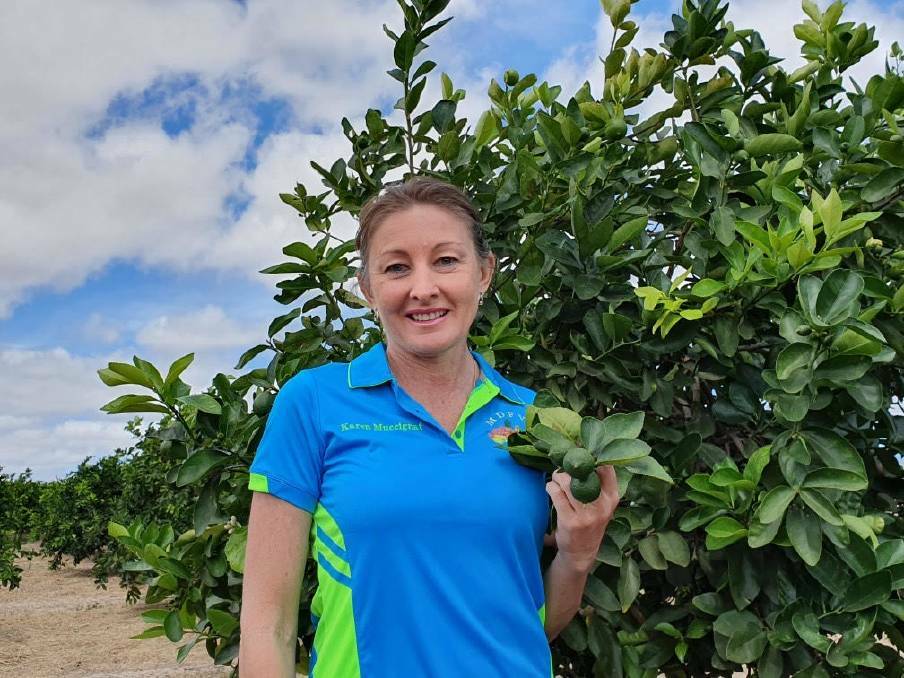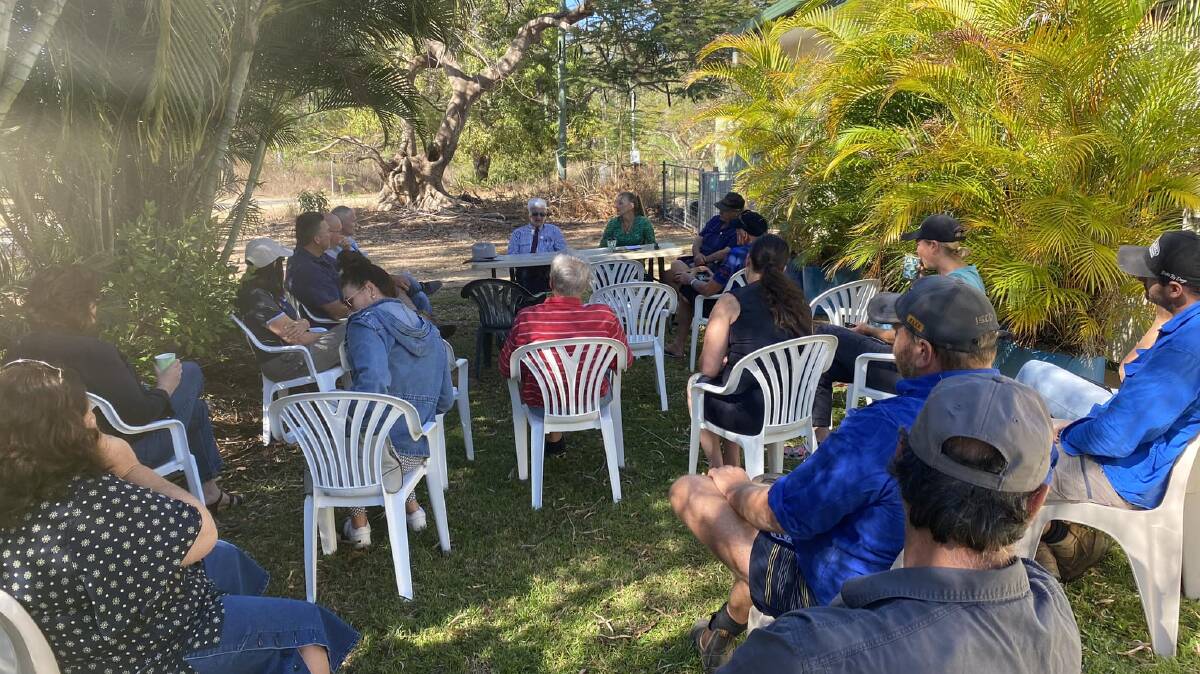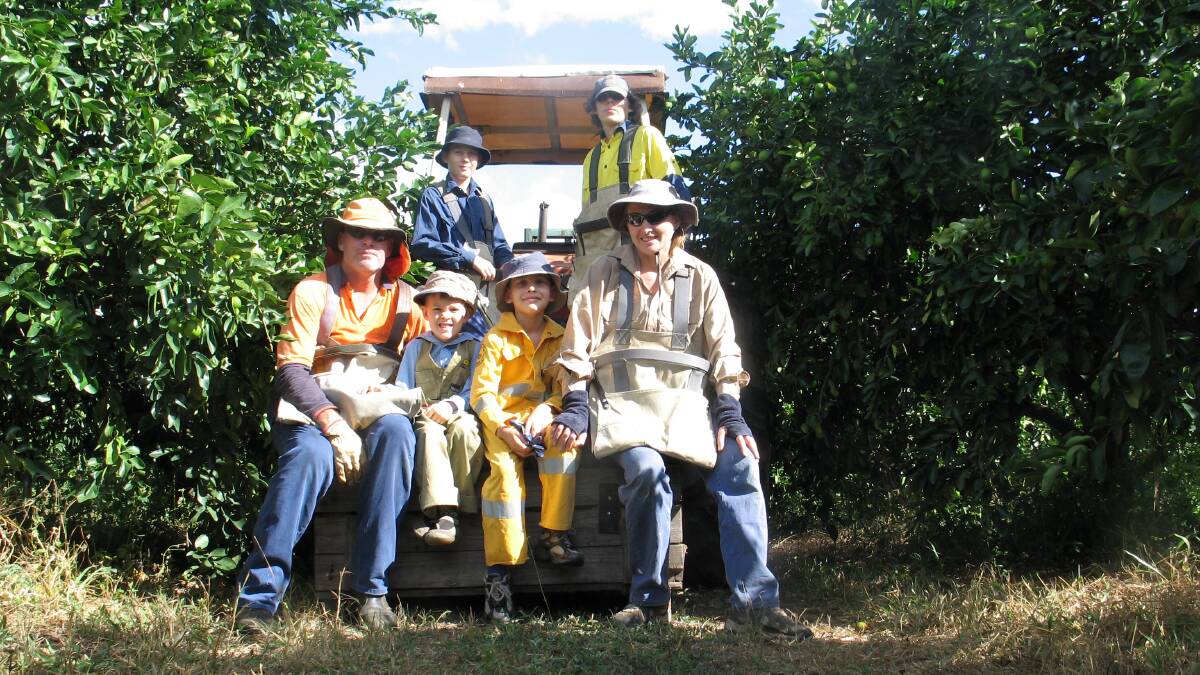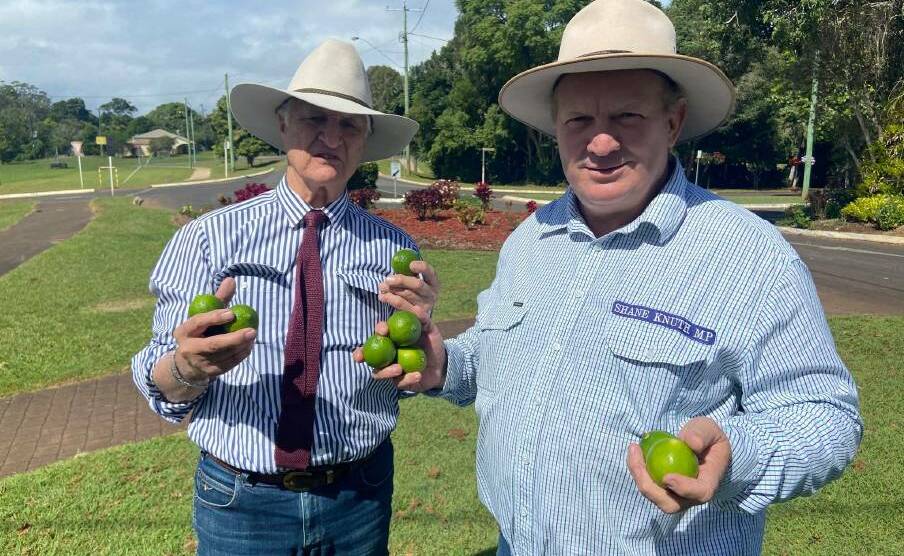
North Queensland lime growers fear for the future of their farms, stating they "cannot compete" with the federal governments decision to import limes from the largest producer in the world.
Subscribe now for unlimited access to all our agricultural news
across the nation
or signup to continue reading
The Australian Government has permitted the importation of commercially produced Persian lime fruit from Mexico, however farmers are fighting the decision claiming it will open the industry up to disease and flood the market.
Karen Muccignat is a lime and mango farmer from Mutchilba, 35 kilometres south west of Mareeba, and said she was devastated with the government's decision.
"The flooding of the market from cheap imports will affect North Queensland growers, particularly because we have a small window during the year where our domestic southern growers cannot produce," Ms Muccignat said.
"We only have a little window where we can grow in the warmer climates and when the fruit grows through winter we cannot compete with southern growers when they have their peak season, simply because of the distance to market.

"If we get a pest or disease, it can shut down the whole farm which means we cannot produce anything. Similar to what happened with the citrus canker, and that's why so many are nervous because many have been through this before
"The government has identified potential pests but state they're low-risk, but we want no risk! We want them to be proactive not reactive."
The agriculture department's decision to permit the import of Mexican limes followed a five-year process assessing the risks, and determined the 20 pests associated with limes from Mexico could be improved by biosecurity import conditions and management measures.
North Queensland farmers have been fighting the import proposal since it was announced in May 2018.
"We have been fighting for a long time because the government allowed fruit to be imported from the Pacific nations, which we knew was a stepping stone for a larger exporter to gain market access into Australia, which it has now with Mexico," Ms Muccignat said.
"We have been made a sacrificial lamb, which is extremely unfair. I was informed, through the free-trade agreements, that Australia wanted to get beef and wheat over to Mexico, and as a result the government had to take their limes.
"It's not fair on us, we don't have free-trade in the lime industry because there is very minimal export opportunity for Australian limes."
Ms Muccignat said North Queensland farmers couldn't compete with Mexican limes.
"Chain stores won't pay over a certain price, so they put pressure onto the market agents to bring a cheaper lime from overseas and we can't compete with the cost of production and cheap labour from Mexico," she said.
"We have high-quality, fresh limes right here in North Queensland, we produce limes 52 weeks of the year. The lime industry is still growing on the Tablelands and while we have been doing this for 34 years, there are many young farmers who are just starting out."

She, and other local farmers, have written submissions to the Federal Agriculture Minister Murray Watt.
"We've had meeting with biosecurity, state and federal members, we've written a massive submission to the federal agriculture department who did look at our submission which delayed it for a while, but it was still recommended to the Minister to go ahead with the Mexican import," Ms Muccignat said.
"The protocols for us to transport our produce to other Australian states is tougher than the protocols to import into Australia.
"We really encourage people to shop local and support local farmers."
The department will now verify that Mexico can meet the import conditions before issuing import permits.
Federal Member for Kennedy Bob Katter shared the same concerns of Ms Muccignat.

He said he had little faith the government could seriously control the threat of pests and diseases by allowing the import of Mexican limes.
"Well you believe in the tooth fairy, if you believe we're not going to get those diseases in Australia," Mr Katter said.
"We've had disease outbreaks that have cost this country hundreds of millions of dollars, because you opened the door.
"I think the minister and the department officials should be sued if those diseases break out."
Mr Katter also questioned what ethical standards would be considered when permitting the import of these limes, with questions surrounding disparity in wage standards, input costs and whether Australia was even in need of additional supply of limes.
The Australian lime industry consists of approximately 380 commercial lime growers. Half of all Australian limes are grown in Queensland.
In 2021-22, Australia produced 23,112 tonnes of limes, accounting for approximately three per cent of national citrus production.
Australian limes are available for most of the year (September-May), with peak availability between January and April.


